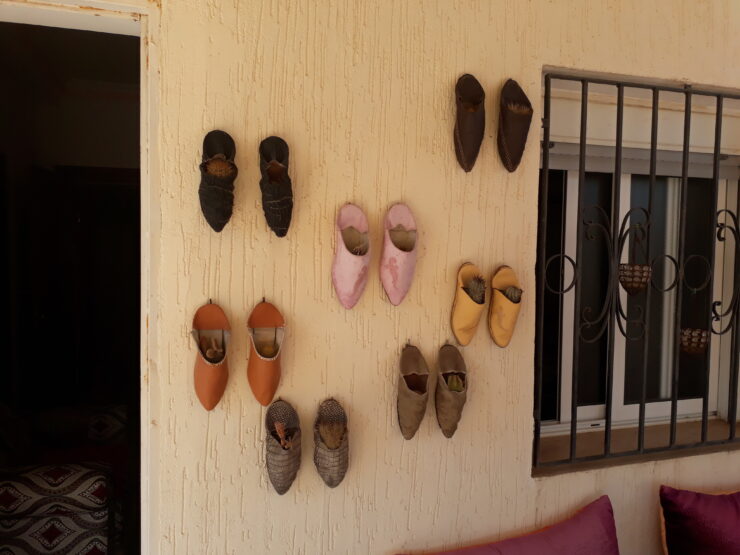Former Religious Matters team member Nina ter Laan has published an article entitled “I feel like we skipped a social class: The role of social class in the hijra of Dutch and Flemish Muslim women to Morocco in HAU: Journal of Ethnographic Theory.
This article stems from Nina’s ethnographic project on the migration (hijra) of Dutch and Flemish Muslim women (born and converted) who leave their home countries to settle in Morocco, conducted during her postdoctoral research in the Religious Matters team from 2016 to 2020.
This article on these Dutch and Flemish muhajirat in Morocco was supported by KNAW, NWO and Birgit Meyer’s Spinoza Prize, is the latest of Nina’s work on the topic, which critically examines the intersections of religion, gender, body politics and race within an alternative mobility framework that challenges the Eurocentric notion of migration as a one-way movement from ‘south to north’.
This article examines the role of social class in the hijra (Islamic migration) of Dutch and Flemish Muslim women (born and converted) to Morocco. Through an ethnography of their home-making practices, it argues that an analysis of social class is crucial to understanding their migration and religious transformation. In contrast to previous intersectional studies that have underexplored social class, ter Laan shows how the changing socioeconomic status of my interviewees, shaped by race, gender, and religion, significantly influenced their migratory experiences. This includes motivations for migration, perceptions of Moroccan society, and the (re)acquisition of white privilege. She argues that hijra, as a transformative religious act of mobility, both emerges from and reshapes their class status through underlying mechanisms of “coloniality”. By tracing their narratives and practices of furnishing and food, Nina highlights the importance of including social class in the analysis of hijra and, more broadly, as a key element in intersectional approaches to migration and religious change.
Nina ter Laan is a cultural anthropologist and religious studies scholar. Her research focuses on artistic expressions, politics of belonging, religion, migration, and gender in postcolonial Euro-Mediterranean contexts. Currently, she is a research fellow in the SFB “Media of Cooperation” at the University of Cologne, examining migration and memory practices in the Rif region of northern Morocco through art, music, and materiality. She holds a Ph.D. from Radboud University, focusing on the political use of contemporary Islamic music in Morocco. Her first postdoctoral research at Utrecht University explored the Islamic emigration (hijra) of Dutch and Flemish Muslim women to Morocco, revealing complex (post)colonial dynamics of religion, race, gender, and social class. Nina integrates artistic practices with collaborative research methods and has taught at various universities while publishing in journals such as Religion, Contemporary Islam, and HAU.
Publications
Laan, N. ter (2023) “Assalamu ʿAlaykum, Can We Add This Sister?”: WhatsApp Group Chat as a Homemaking Practice among Dutch-Speaking Muhajirat in Morocco. Religion and Gender, 13(2), 206-226.
Laan, N. ter (2023) “Anything can happen on a smartphone…” Mutual explorations of digitalization and social transformation in Morocco’s High Atlas through On/Offline Theatre Ethnography., Working Paper Series Media ofCooperation, (June).
Laan, N. ter (2021). “They have no taste in Morocco.” Home-making practices among Dutch-speaking muhajirat in Morocco. Contemporary Islam, 15 (1), 15, 57–82.

